Once described as “five foot one of indomitable will”, this interview with the Olympic Champion, Chang Hyejin took place earlier this year shortly before this year’s Asian Games. By Vanessa Lee.
Chang Hyejin didn’t appear to be the most intimidating competitor at the 2008 World University Archery Championships in Tainan, Taipei. It was her first international event, and she eventually ranked as the top seeded archer after qualifications. On the other end of the field, I was also shooting my first international event, but ranked 33rd and ended up meeting Chang in the second round of eliminations. Usually, competitors shake hands and move on to either pack their bows for the flight home or prepare for the next round of eliminations. But my brutal defeat ended up turned into an opportunity for me to train alongside Chang, who would later become my roommate, training partner, and friend.
Fast forward ten years and Hyejin has a long list of major accomplishments including two gold medals at the 2016 Rio Olympics. I had the opportunity to catch up with her recently and she opened up about many things including her humble beginnings in archery, the ruthless national team selection process – and what’s in her future.
How much do you practice and what do you specifically work on?
When you’re training at the National Olympic Training Centre, you really don’t shoot that many arrows compared to other archers in Korea. Before competitions, we typically shoot more scores during practice. In the morning, we shoot about 130 arrows and in the afternoon, we shoot about 220 or 230 arrows. Altogether, it’s anywhere from 300 to 400 arrows. You could say an average of 350 arrows a day. What do I work on? (pauses and laughs) I’ve learned over the years that I really don’t focus well during practice. Since I can’t stay focused all day, I can’t keep up with the amount of training others do here. So, my style is just to focus really hard when I’m feeling good.
On an average day, rather than focusing on where my arrows are going, I’ll think about my shot feeling but when I’m feeling good, I’ll focus on both where my arrows are going and how my shot feels. I just can’t focus for long periods of time. In competitions, I focus really hard so I end up shooting better than I do in practice. I really don’t shoot well in practice and that’s because I can’t focus well enough and I don’t have good groups. My mental routine at the Olympics… was to “just focus” (laughs).
Has your technique changed at all recently? It seems to be more “pronounced”.
Oh, you think so? I’ve actually been trying to shoot with less tension in my hands. I guess my shot looks stronger now that I’ve been shooting with less tension.
At the Antalya World Cup this year, when you had to shoot individual, mixed team and team, you looked exhausted by the end. Do you think that had anything to do with the results?
When we went to Turkey, I wasn’t feeling great and that made me worry a bit. After Shanghai, my shooting felt good during practice but just before Antalya, that started to change. I ended up making it to the finals for individual mixed team and team, but my shot didn’t feel like it should and it was windy so I think I just broke down mentally. I even shocked myself because I shot a six in teams, mixed team and individuals? How do I shoot a six in all three of those matches? I just wasn’t able to focus on what I needed to at the time and I let the circumstances affect me. Rather than letting it affect me, I should have gained control over myself. but I let it affect me too much.
Getting through the Korean national trials every year seems to increasingly favour experience and stamina over raw form. Why does it have to be so tough?
I’ve been shooting Korean national team selections for about 10 years but I shoot it differently now than when I first started competing. After gaining experience year after year, I think I’ve learned how to approach our trials a bit better. We shoot against the best archers in Korea so every match is really
important but our selection format is so incredibly long that there’s no way you can stay focused for an entire day.
We typically start each day from eight in the morning until five or six at night and that lasts for an entire week. It’s really demanding physically but it’s even tougher mentally. Archers who don’t have a lot of experience with the tournament format end up getting eliminated after they can’t keep up physically, then break down mentally. From my past experiences, I’ve learned that there’s really important matches and other matches that aren’t as important. This is just how the team selections format works. I guess you can say, you really have to look at the big picture so it’s important that you don’t focus too hard and lose yourself in each mach. Rather, you need to look at the big picture and shoot so that you have the mental and physical stamina to last until the end.
In an interview, [teammate] Kang Chae Young said she most looks up to you as her mentor. What does that mean to you?
Throughout my time on the national team, I’ve met a lot of people I’ve gotten along with and some I haven’t gotten along with. When I first joined the team, I looked up to Joo Hyun Jung [the 2008 Olympic team gold medallist and 2009 World Champion] because we had similar personalities. I learned from observing her training style, but also how she behaved around the training centre and how she carried herself around the archery range and I wanted to become more like her.
I didn’t know Chae Young considered me to be her role model until I saw an article that was written about her. Chae Young has a really bright personality and always thinks positively, so I think she saw those similarities in me and thought I would be a good role model. I was just really grateful. I didn’t consider myself to be a great archer but finding out younger archers saw me as a role model or when I heard that people would study my technique to improve their own form, I guess it made me realise, “wow, I’m really old now, aren’t I?” (laughs) Of course, I felt more of a sense of responsibility and try to encourage younger archers a bit more and show them the best version of myself.
How did you get started in archery?
In elementary school, my friend asked me to go visit the archery range with her. I asked her, “archery range?! What’s an archery range?” [laughs] When we got there, there were people holding weird things and shooting. I thought it looked cool and that it would be fun. My friend said that we should start together so we did. She stopped shooting a long time ago (laughs). I was pretty bad in elementary and middle school.
Whenever I went to competitions, my friend, Myung Ja, who went to another school would always come first. I didn’t really come in last place but I was somewhere in the middle. In my own school, I wasn’t the ace but I guess my role was to lighten the atmosphere. I guess it was because of that, my coach really encouraged me and my parents would come out to cheer for me at competitions. It was just a lot of fun.
Did you ever consider quitting?
I shot the worst in middle school and found myself in a bad slump. I remember in practice I couldn’t pull through the clicker. I couldn’t even shoot one arrow out of an end of six. All I did was draw the bow and put it down, draw the bow and put it down. I really don’t know why I didn’t quit but up until middle school, I had stopped studying and had only focused on archery. I guess I didn’t want to quit archery and start studying again! When I was going into my first year of high school, my city (Daegu) got a new sports school. I was so excited to go that new school and shoot with a bunch of friends that did archery too. It turned out that my coach at that high school was really scary and there were days when I didn’t go train and would run away until my parents came and found me.
In my second year of high school, I went to a national tournament and got my first medal. I suddenly realised, “wowwww, this is what it feels like winning a national medal!” After that, I kept working hard so I could win medals. I guess I haven’t ever thought about quitting since.
But you were also team captain in university and had archers looking up to you. Did you ever feel this sense of responsibility at Keimyung University?
Oh, definitely not! I still really hadn’t accomplished anything back then. I don’t know what the younger archers thought of me, but I didn’t feel like I had a lot of responsibilities in university. All I really focused on was going to tournaments and having fun. That sense of responsibility came later. To be honest, I hadn’t really considered trying to make the national team when I was in university. It was never a goal for me. It was fun just shooting, going to tournaments and going out to enjoy myself. I really wasn’t shooting at a level high enough to make the national team. It wasn’t until my 4th and final year of university where I was at the national team trials. Only eight archers were being selected and I came in ninth. It was then that I realised, “wow, maybe I actually can do it.”
That’s interesting! I didn’t know that about you.
[laughs] That’s because you and I always joked that we’d meet at the 2012 London Olympics but to be honest, competing at the national team selections when I had such little experience was way too difficult for me. By the third day of selections, I’d want to throw up as soon as I saw my bow and shooting was just so difficult. I guess when you came to train with us and I got a few friends in the international archery community, I thought [making the national team] would be fun but I really didn’t have any self-confidence at the time. I ended up making the national team in 2010 and suddenly, the Olympics didn’t seem quite such an impossible dream that could never happen.
Can you describe your routine when you’re shooting?
When I go to competitions, there really isn’t a lot in my routine. I write two things on my personal scorecard, “shoot the first shot with confidence” and “focus on yourself”. Other than that, I usually have a Bible verse in my mind or something like that. When I go to competitions, rather than having a routine, I just believe in God and shoot with confidence. If I just shoot with confidence, the results will happen on their own. I just try my best in every moment.
Every Korean archer talks about “shooting with confidence”. But how do you get that confidence?
I guess confidence is just about trusting yourself. In practice, I’m sure we all know what it feels like to shoot a ten, or at least a good shot. In a situation in which you’re nervous, it’s possible to let the pressure of having to shoot a ten affect you. Confidence comes from doing what you’ve done in practice and having faith in yourself. Then: just shoot as you normally do.
Do you have an archer you admire who shoots outside of Korea?
I really like Lei Chien-Ying from Chinese Taipei. She’s been shooting really well lately and it turns out she’s really nice too! I like a lot of archers internationally. They’re really different from Korean archers. When you make eye contact, everyone kind of laughs and says ‘hi’. I wish I could communicate better so I could say something meaningful but since I can’t, I just smile and say, “hi” or “how are you” but that’s about it. When you think about it, it’s just a bit unfortunate that Korean archers can’t communicate more with other international archers.
What’s it like living at the new national team centre at Jincheon? [the Korean team recently moved from their old national training centre on the outskirts of Seoul to a large Olympic sports complex in the mountains]
Jincheon? It’s really frustrating! [laughs] There’s nothing to do here. It’s really a place where all you can do is train. The food is good but after being at the national training centre for ten years, I go out to eat a bit. There aren’t a lot of places to go out and eat and enjoy yourself, so it’s tough.
How old are you again this year?
I’m 32. Since I have to keep working hard towards the Asian Games, I’m hanging on as much as I can mentally. Even though everything seems to be crumbling inside, I’m hanging on. As each year passes, I start to feel my body struggling a bit more. I really didn’t have a hard time last year going to the World Cup circuit whether it be my condition or dealing with jet lag. This year, once I go overseas, I can’t seem to adjust. Tokyo is still a goal for me, but time is flying by so quickly. I just want to get the Asian Games over with so I can get some rest and recover to start again next year [laughs]. I’m not thinking about Tokyo as of yet.
What should recurve archers do that you don’t think they do enough of, generally?
These days, everyone seems to be training well. Especially when I think of international archers, I don’t think they’re lacking in anything they’re doing. If you look at it one way, you could say that archers around the world are more analytical and are doing things better than Korean archers.
You’ve definitely become a bit more of a media personality since Rio. There’s more creativity about what you do online. Where has that come from?
I’m not sure if it’s creativity, but it’s definitely been different since Rio. I suddenly got a lot more people following me through social media so I had to be more careful about what I was posting. A lot of people would leave comments like, “Hyejin, you’ve got this!” or things like that so if I showed them through a post that I was having a hard time, it would go against this positive and upbeat image people have of me. I just became more conscientious about portraying a positive image to people who consider themselves my fans. To be honest, it’s been a bit more stressful now, so I haven’t been posting as much lately.
We’ve gotten to an age at which we have to start considering future plans like marriage, having kids, and those sorts of things. Do you have any plans as of right now?
Yeah, we’ve definitely gotten to that age! Everyone I know is getting married and having kids. All I see on Instagram these days is photos of babies! I mostly see my family on the weekends when we don’t have training. I talk with my dad every day. These days, I’ve felt like I want to get married and have kids but I need to be with someone to get married! But I can’t get married on my own (laughs). Even if I was dating someone, I’d have to get married before the Olympics. Maybe I’ll get married after Tokyo. And I’d really love to go overseas for a vacation. Can you believe I’ve never been on vacation abroad? It’s ridiculous isn’t it?! I have money but I don’t have any time! After the Asian Games, I really want to spend one week laying in bed doing nothing and then one week on vacation somewhere.



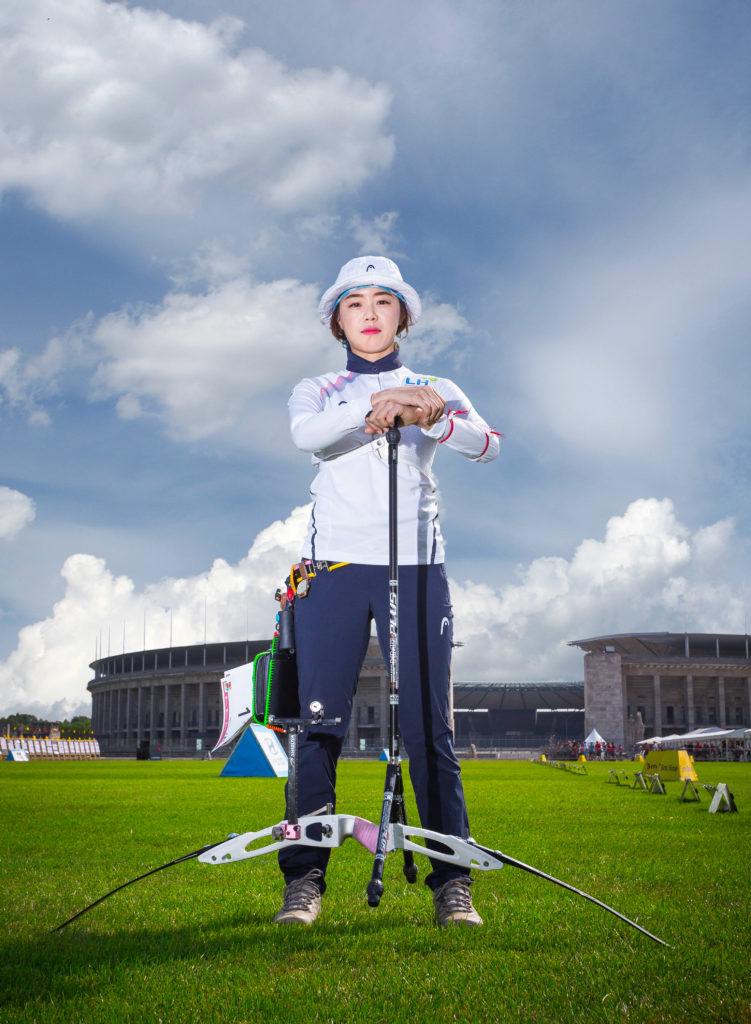
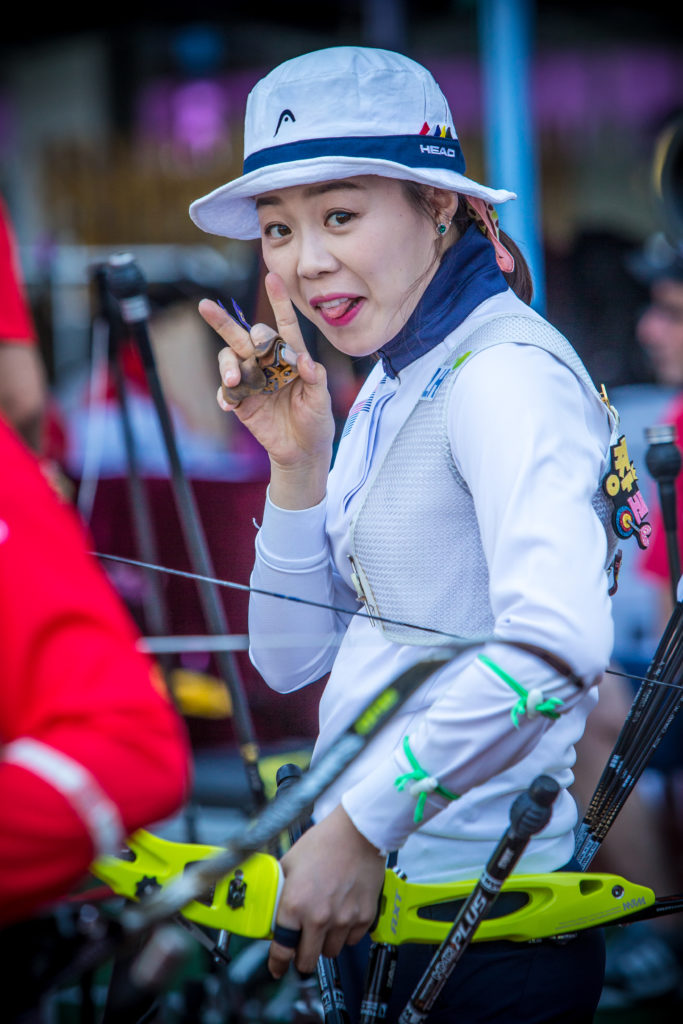

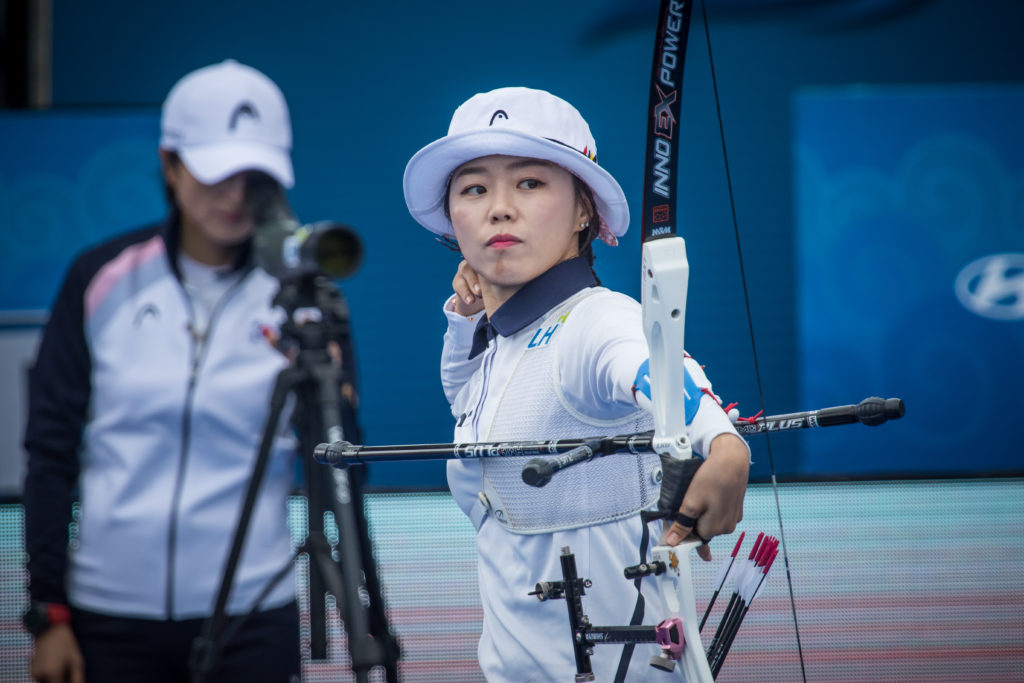
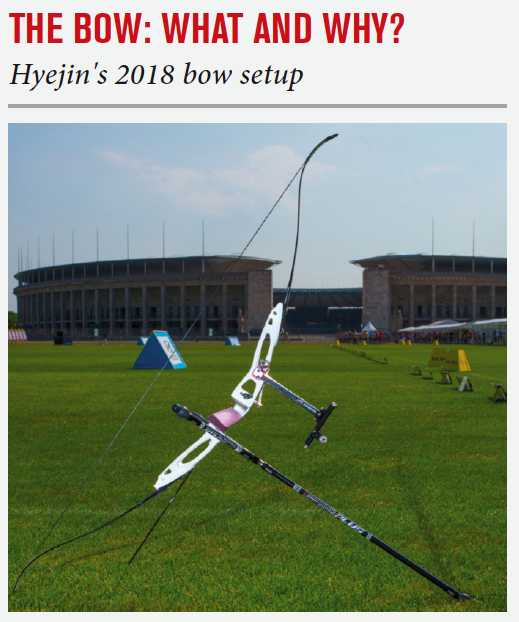
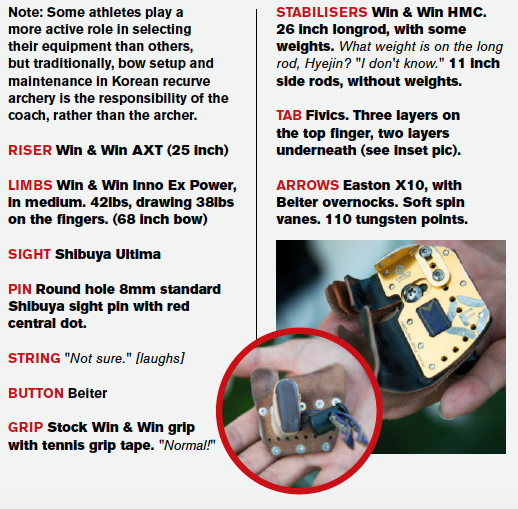
Brilliant interview. Chang seems to be a very genuine nice person and totally honest. I just hope she is about for many more years.